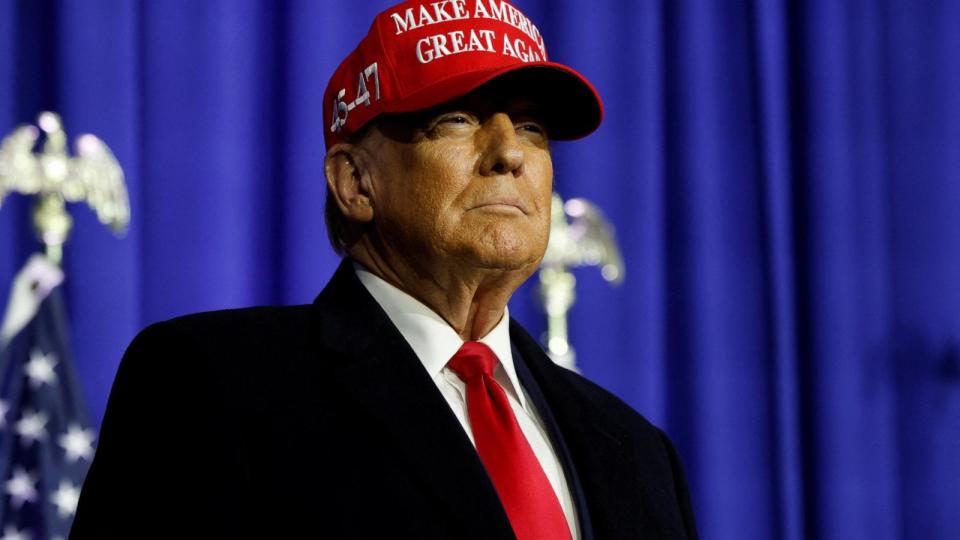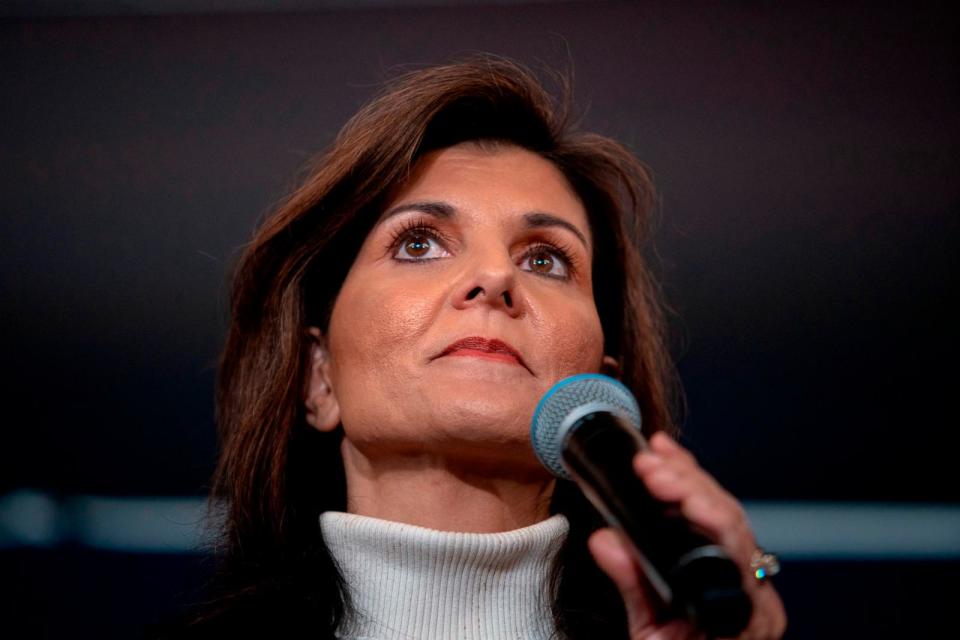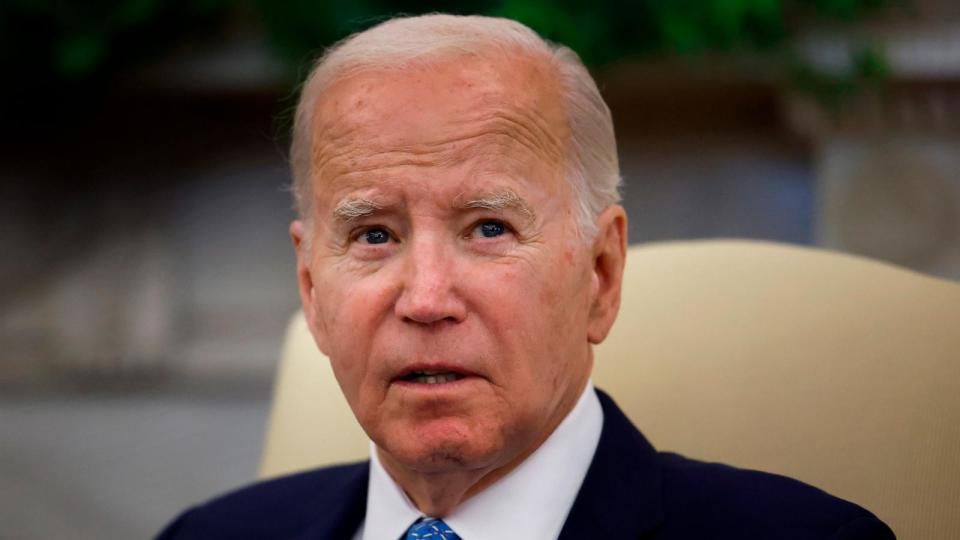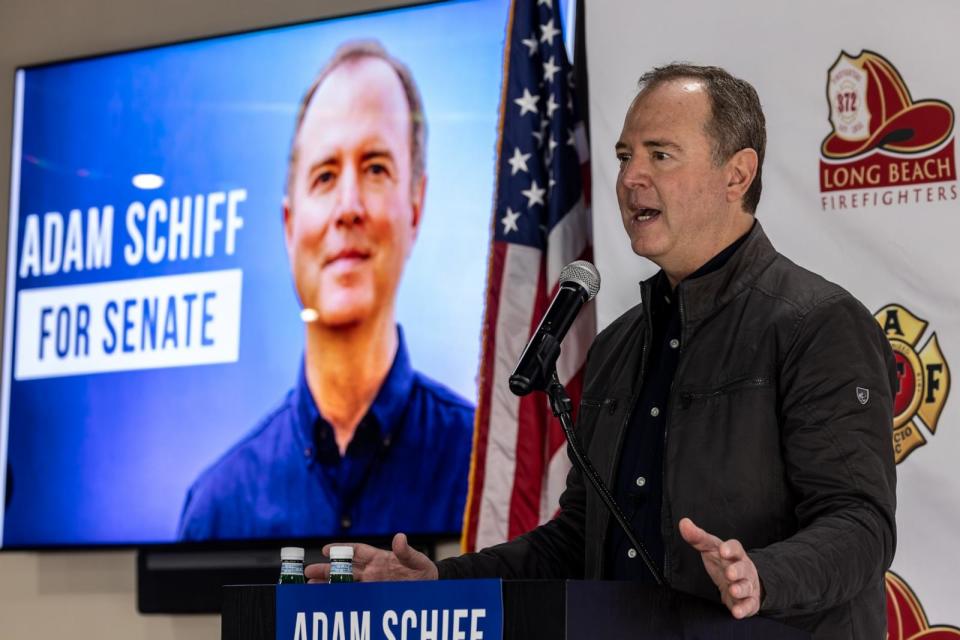5 things to watch for in Super Tuesday's races
Sixteen states and one territory are holding nominating contests on Tuesday, marking a fulcrum point in the two parties' primary calendars and giving the day its traditional "Super Tuesday" moniker.
Former President Donald Trump is expected to continue beating former South Carolina Gov. Nikki Haley, his only remaining serious GOP opponent who so far has only won the District of Columbia's primary, which drew about 2,000 votes total.
Haley is so far behind in the race for the delegates who decide the nomination that speculation has mounted that she could suspend her campaign as soon as Tuesday night, if the results are as dour for her as expected based on polling -- though what comes next for her is less clear.
On the Democratic side, President Joe Biden is anticipated to breeze through the night because he continues to face only long shot challengers, though some progressive groups are pushing for protest votes over his handling of Israel's war with Hamas in Gaza.
And down the ballot, primaries are being held for critical Senate and House races.
Here are five things to watch on Tuesday.

How big are Trump's margins?
Little indication has emerged in the polls or in the votes so far that Trump will do anything but romp on Tuesday night, keeping in line with almost all of his primary performances this year, where he has beaten Haley and others by double digits.
Still, how big his margins of victory are will likely be dissected.
Haley has made hay of the fact that in most places, at least a third of the primary electorate has backed someone besides the former president, citing it as a warning sign about his electability in November and a rationale for her to stay in the race.
"He lost 40% of the primary vote in all of the early states," she said last week at a campaign rally in Minnesota. "You can't win the general election if you can't win that 40%."
History shows that many of those Republicans are anticipated to come home to the party in November, especially once the race becomes a one-on-one matchup with Biden. In the 2016 primary, Trump actually lost 11 contests to Texas Sen. Ted Cruz while only earning about 45% of the total GOP vote nationwide -- before consolidating support in November of that year to defeat Hillary Clinton.
Still, his margins on Tuesday, especially among college-educated and suburban voters, independents and moderates -- exactly the kinds of voters he shed in 2020 -- will be analyzed as the calendar turns from the primaries to the general election.
Haley's last stand?
Haley has done little to tamp down the chatter about her next moves, particularly if she sees a string of major losses.
The South Carolinian has been insistent that she would stay in the race through Tuesday but she has repeatedly demurred on what comes after. Her campaign had no more public events scheduled beyond Monday and she is expected to watch Tuesday's results from her home state, privately.
"My approach has always been, as long as we're competitive," she said late last week. "Super Tuesday, we're going to try to be competitive. I hope we go forward."
Still, Haley has remained an active presence on the trail and continued pitching herself as a strong Trump alternative, including after the U.S. Supreme Court on Monday ruled that the former president couldn't be removed from ballots by states under the "insurrection clause" of the 14th Amendment.
"Look, I'll defeat Donald Trump fair and square, but I want him on that ballot," Haley said in Texas on Monday.
"It is time for a new generational leader who can leave the negativity and the baggage behind and get to work for the American people," she added.

Where does Haley go next?
Should Haley end her campaign on Tuesday or shortly after, her future is unclear.
Rumors have swirled that she could be recruited for a third-party bid, potentially as part of No Labels' "unity ticket" with a Democrat, though in recent days she has poured cold water on that speculation, maintaining that she remains a Republican and she hasn't given any thought to running on a different ballot line this November.
Yet her place inside the party isn't exactly secure either, given how the base has been rejecting her in favor of Trump.
Despite weeks and weeks of sharp criticism against him, Haley's failure to make a dent in the primaries thus far underscores the continued GOP appetite for Trump and his brand of politics -- alongside the sheer lack of enthusiasm for Haley and her more establishment conservatism.
Interviews with more than a dozen attendees at the recent Conservative Political Action Conference, a get-together for the GOP's hard-line base, revealed an eagerness to shun her from the party altogether. And Haley herself last weekend hedged on whether she would back Trump in November despite signing a pledge to support whomever the ultimate Republican presidential nominee is in order to meet the Republican National Committee's debate requirements.
"If you talk about an endorsement, you're talking about a loss. I don't think like that. When you're in a race, you don't think about losing. You think about continuing to go forward. What I can tell you is: I don't think Donald Trump or Joe Biden should be president," Haley said on "Meet the Press" when asked if she'd support the former president.
When pressed by moderator Kristen Welker specifically on the pledge she signed, Haley said then, "The RNC pledge -- I mean, at the time of the debate, we had to take it to where, 'Would you support the nominee?' And in order to get on that debate stage, you said 'yes.' The RNC is now not the same RNC."
There does lie a lucrative path outside of being in office -- which Haley has walked before -- including serving on corporate boards, writing a book and exerting political influence through commentary and PAC spending.

How does Biden do?
Biden faces nominal opposition on Tuesday, but Democrats are likely to be on the lookout for any signs of a possible protest vote.
More than 100,000 people in the Michigan primary voted for "uncommitted" last month, fueled by opposition to the administration's handling of the war in Gaza, and some progressive groups are looking to keep up the momentum.
Our Revolution, a prominent liberal group, on Monday urged its 132,000 members to vote "uncommitted" in Washington state next week. Similar efforts are sprinkled throughout the states voting on Tuesday.
However, it's possible Michigan presented a unique situation for Biden's critics to make themselves heard. The state has a notable Arab population compared to other states, and "uncommitted" is a more familiar and established primary ballot option in Michigan than it is elsewhere, leaving even some advocates skeptical of major gains moving forward.
"There are organizers in other states who've been reaching out saying, 'We want to do what you did in Michigan,' but we know we're not going to get the same results,'" Abbas Alawieh recently said.

Big down-ballot primaries
Several key Senate and House races will also be set up after Tuesday.
Chief among them is California's Senate race. The state's jungle primary system means that whoever the two top vote-getters are advance to the general, regardless of party. Democratic Rep. Adam Schiff has invested heavily to prop up Republican Steve Garvey, an easy foe in deep-blue California. But Rep. Katie Porter, another Democrat, is also fiercely competing for second place and a Schiff-Porter matchup in November would likely funnel national resources to a safe seat.
In California's 22nd Congressional District, Democrats are at risk of being locked out of the chance to unseat Rep. David Valadao in a swing seat. Valadao and another Republican are running against two Democrats -- and Valadao is virtually guaranteed a spot on the general election ballot. Not having a Democrat to go up against him would be a major missed opportunity for the party.
In Alabama, a redistricting-fueled incumbent-on-incumbent race is taking place in the 1st Congressional District between Republican Reps. Jerry Carl and Barry Moore. A primary will also be held in the newly created 2nd Congressional District, which was designed to give Black voters a louder voice and is overwhelmingly Democratic-leaning.
And in the battleground of North Carolina, state Attorney General Josh Stein, a Democrat, and Republican Lt. Gov. Mark Robinson are expected to coast to their respective parties' nominations, setting up the nation's marquee gubernatorial contest later this year.
5 things to watch for in Super Tuesday's races originally appeared on abcnews.go.com

